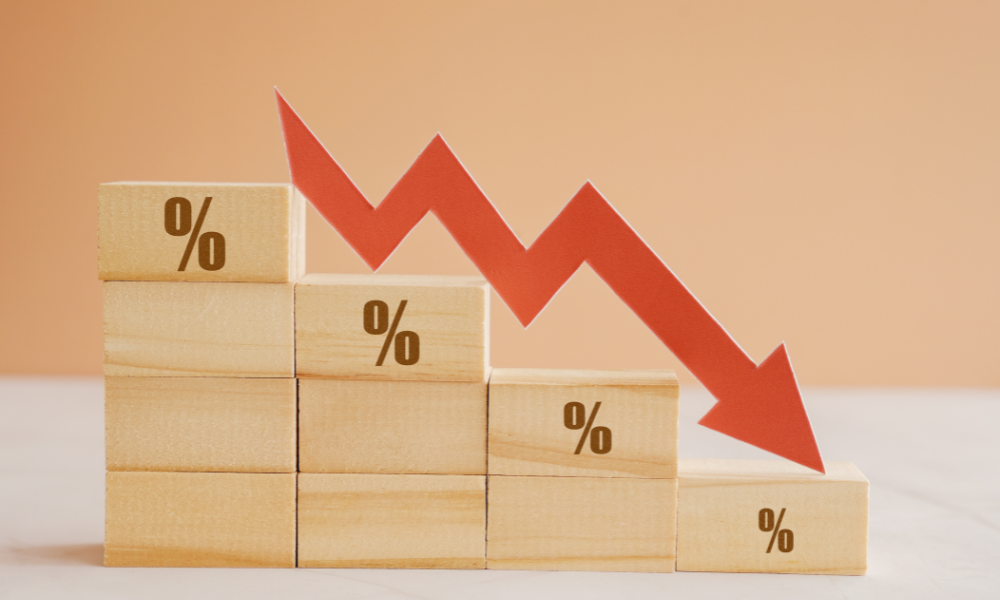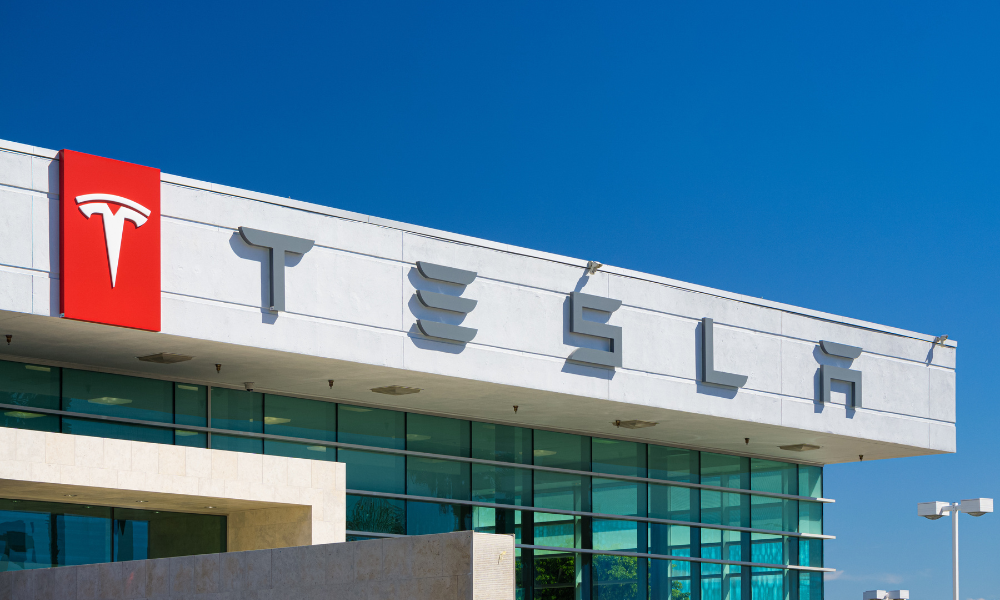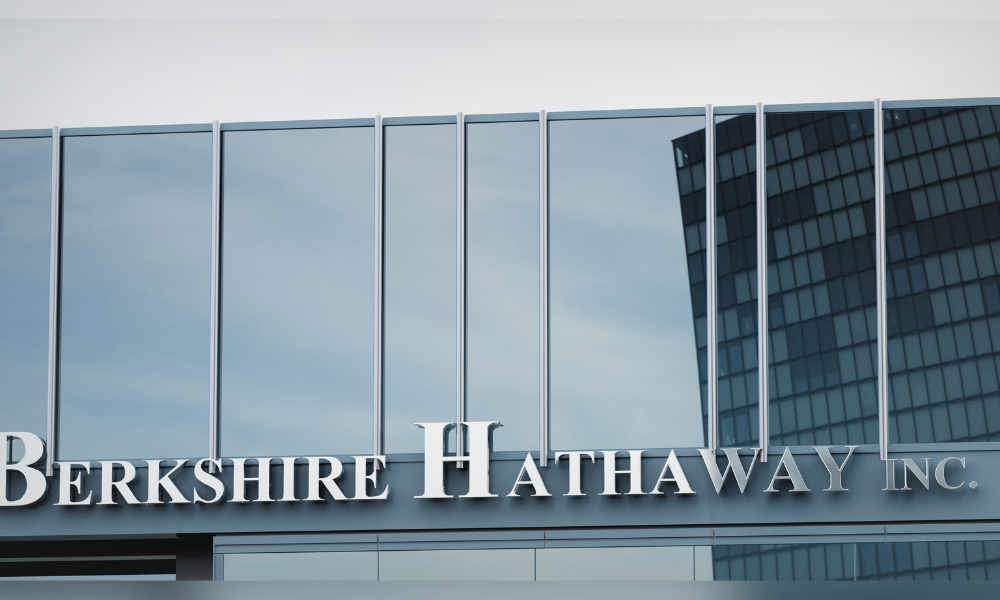TSX gains 2% as US markets fall on economic uncertainty and new trade threats from Trump

On Tuesday, a flat reading in US services activity and new tariff warnings from US President Donald Trump reignited fears of stagflation, pulled Wall Street lower, and cast fresh uncertainty over global economic momentum.
The Institute for Supply Management’s services index showed no growth in July, a signal that services—comprising nearly 70 percent of the US economy—may be slowing.
According to BNN Bloomberg, the weaker-than-expected data added to worries that recent tariffs are weighing on US businesses.
One respondent from the health care and social assistance sector told ISM, “Tariffs are causing additional costs as we continue to purchase equipment and supplies.”
Another business in real estate noted that “tariff talk has turned out to be much more bluster than actual policy.”
Trump added to market jitters by telling CNBC he would “be announcing on semiconductors and chips, which is a separate category, because we want them made in the United States,” and said the new plan would be unveiled “within the next week or so.”
According to CNBC, the prospect of fresh tariffs on chips and pharmaceuticals added pressure on equity markets already coping with labour and inflation uncertainty.
The S&P 500 slipped 0.49 percent to 6,299.19, while the Nasdaq Composite fell 0.65 percent to 20,916.55 and the Dow Jones Industrial Average declined 61.90 points to 44,111.74.
BNN Bloomberg reported that the S&P 500 remains just 1.4 percent off its record high, though recent volatility—including a 500-point drop Friday and a 600-point recovery Monday—reflects investor unease.
In contrast, Canada’s S&P/TSX Composite Index jumped 549.65 points, or 2 percent, to 27,570.08 as it played catch-up from Monday’s rally, having been closed for the August long weekend, as per BNN Bloomberg.
Investor hopes for interest rate cuts in September remain intact following last Friday’s disappointing US jobs report.
The 10-year Treasury yield has since dropped to 4.19 percent from 4.39 percent before the data release, as reported by BNN Bloomberg.
Palantir Technologies stood out, gaining 7.8 percent after beating profit estimates and raising its revenue forecast.
CEO Alex Karp said, “We continue to see the astonishing impact of AI leverage.”
Axon Enterprise jumped 16.4 percent after citing stronger profit growth linked to its AI-driven public safety tools.
According to CNBC, these results reinforced investor interest in companies aligned with artificial intelligence expansion.
Meanwhile, earnings weighed on several names.
Edgewell Personal Care dropped 18.8 percent after reporting a weak quarter, with CEO Rod Little citing a soft sun care season and tariff impacts.
Eaton shares declined 7 percent after issuing disappointing guidance, and Caterpillar ended the session flat following an earnings miss.
Other notable moves included American Eagle Outfitters, which fell 9.5 percent, pulling back from a 23.6 percent gain Monday after Trump publicly supported its controversial ad campaign.
According to BNN Bloomberg, Yum Brands also slipped 5.1 percent after missing analyst expectations.
Despite Tuesday’s dip, HSBC raised its S&P 500 year-end target to 6,400 from 5,600, pointing to artificial intelligence momentum and reduced policy uncertainty.
HSBC strategists said in a note cited by BNN Bloomberg that “the AI trade is powering the tech/AI cohort higher... while reduced policy uncertainty (namely tariffs) is fueling the ‘rest’ of the market.”
Their bull-case scenario sets a 7,000 target.
Elsewhere, Las Vegas-based modular home startup Boxabl announced it will go public via a US$3.5bn SPAC merger with FG Merger II.
According to BNN Bloomberg, the company, known for its foldable “Casita” homes priced from US$19,999, will list under the ticker “BXBL” and has raised more than US$230m to date.
The deal is expected to support production expansion and R&D investment.
Bonus projections also reflected market volatility.
A report by Johnson Associates cited by BNN Bloomberg forecasted 10 to 30 percent increases for Wall Street traders due to tariff-driven uncertainty.
“All the uncertainty around the tariffs and the continuous upheaval favors volatility and traders,” said founder Alan Johnson.
In contrast, compensation for investment bankers is projected to remain flat or rise modestly by 5 percent, while private credit professionals could see payouts climb 7.5 percent.
Commodity prices showed mixed performance.
The September crude oil contract dropped US$1.13 to US$65.16 per barrel, while December gold climbed US$8.30 to US$3,434.70 per ounce. The Canadian dollar edged up slightly to 72.54 cents US from 72.48 cents US on Friday.
Abroad, most European and Asian stock indexes closed higher, although India’s Sensex fell 0.4 percent amid concern over US pressure to cut oil imports from Russia, as reported by BNN Bloomberg.



